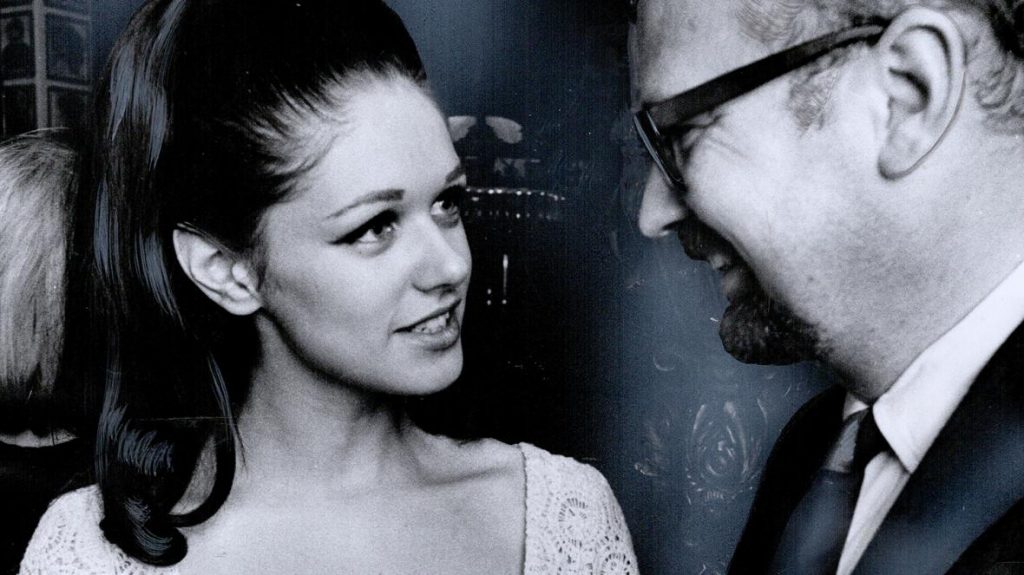Blog Post
Barbara Amiel’s abortion
By Jonathon Van Maren
The first time I saw Barbara Amiel was in 2012. I was sitting in the balcony of the Toronto Convention Centre for Steynamite, a night of raucous right-wing comedy featuring best-selling author Mark Steyn and a cast of other characters. My friend elbowed me in the ribs and pointed to an elegant woman wearing dark clothing and a longsuffering expression seated in one of the front rows: “That’s Barbara Amiel.” Her husband, Conrad Black, was serving time in a Florida penitentiary (he would win his long battle for exoneration in 2019 with a presidential pardon), and although he would be released a mere ten days later, it was a matter of great fascination for the younger conservatives present that the right-wing grand dame was in attendance.
Barbara Amiel has now released a much-discussed memoir, a massive tome of over five hundred pages that is no less readable for its length. Friends and Enemies is fascinating for many reasons. Amiel has known almost everyone in the conservative sphere in her time, and the anecdotes alone are worth the cover price. She is also a magnificent writer. It is an often savage book, but she is far more brutal to herself than she is to any of her enemies. It is hard to decide if this book is courageous (considering her frank admissions of her ugliest faults) or simply another indication that after all that, Barbara Amiel still couldn’t care less about what any of us think of her.
One of the most affecting passages for me came early in the book, where she discusses the abortion she had as a young woman. She has touched on this topic before. Back in April of 1984, she wrote a column for Maclean’s on a lawsuit between a husband and wife, with the father attempting to stop the mother from aborting their child. He failed, and Amiel excoriated the decision. “Fathers, as far as abortion goes, are regarded as breeding bulls, manufacturers of semen who have legally no connection with their offspring except when it comes to support,” she wrote. “Once you deny the natural interest parents have in their offspring, born or unborn, a vacuum is created, and the only entity that can fill that gap rushes in—the state.”
“The state has determined when and who may kill the unborn child,” she went on. In conclusion: “[O]ur society has arrived at King Solomon’s judgment in reverse. That king solved the problem facing him on the basis of which parent would give up her rights to the child in return for giving it the gift of life. Our law has awarded the child to the parent who would—very fairly—cut it in half. To what have we progressed? Surely, under most circumstances, whenever the choice is between two parents—one wishing to keep and love the child and the other wanting to do away with it—surely the spirit of liberalism and regard for the individual say that the law should be on the side of life.”
In 2013, Amiel wrote another column for Maclean’s on abortion, this one confessional. While her 1984 column defended hapless fathers, this one was titled “Whatever happened to maternal instinct?” It was 1965, she wrote, and she was 24 and working at the CBC when she discovered that she was over four months pregnant. In her memoir, she fills in the details. She called a friend, Robert Hershorn (Leonard Cohen’s cousin.) He knew what to do and promised to call her back. When he did, he provided her with the name of Toronto doctor Leslie Frank Smoling who, she noted, was tried twenty-three years later with Dr. Henry Morgentaler in the case that would eliminate Canada’s abortion laws. The abortion cost $400, and she got the money from both men who might have been the father.
“The storefront had boarded windows covered with paper notices and a backroom featuring a dentist’s chair,” she wrote. “No anaesthetic but lots of oral Valium. ‘Are you less than three months pregnant?’ asked Dr. Smoling. ‘Yes,’ I lied. He was a conscientious doctor, must have quickly seen what we were dealing with, and loaded me up with antibiotics. Mount Sinai Hospital dealt with that night’s outcome of the intervention, and the little life inside of me was extinguished…Retrospective sentimentality is odious when one is entirely responsible for those fingers closing, the heart stopping and the tiny body being stabbed and shredded.” In her 2013 essay, Amiel wrote that she didn’t really know at the time what she was doing: “[U]ntil I looked at fetal development charts for this column, I never understood what was inside me: a tiny being with limbs and fingernails that might have felt discomfort as the doctor’s instruments murdered it.”
Despite all that, Amiel writes, if she revisits her younger self, she suspects that she would have made the same decision even if there had been money to support her and the child. Unflinchingly, she highlights her own selfishness and ambition. Thus, she writes, she is “reluctantly” in favor of the legality of abortion in “the first couple of trimesters.” What she is opposed to is allowing people to lie to themselves. “At the very least,” she reflects, “one should know its shape, understand it has developed toes and fingernails, can stretch and yawn, see its fierce little fight for life. ‘Death comes to the apple, death comes to the cheese,’ as my former husband [George Jonas] wrote in one of his poems. Death came to my fetus. I did not know this would be my single chance at having a child.”
I vigorously disagree with Amiel that abortion should be legal, or even that it is, as she put it in her 2013 column, “a dark necessity.” I’d love to have a discussion with her on the “necessity” bit, which I suspect would be fascinating and worthwhile. But I wholeheartedly agree with her that abortion is the cruel destruction of an innocent human life, and that mothers—and fathers—should be confronted with the truth about what they are doing before they procure an abortion. We need more of Amiel’s clear-eyed honesty in this debate, especially in Canada, where honesty is cast as misogyny by our intentionally blind elites. This debate, after all, is about mothers, fathers, and their children—the building blocks upon which our civilization rests.








